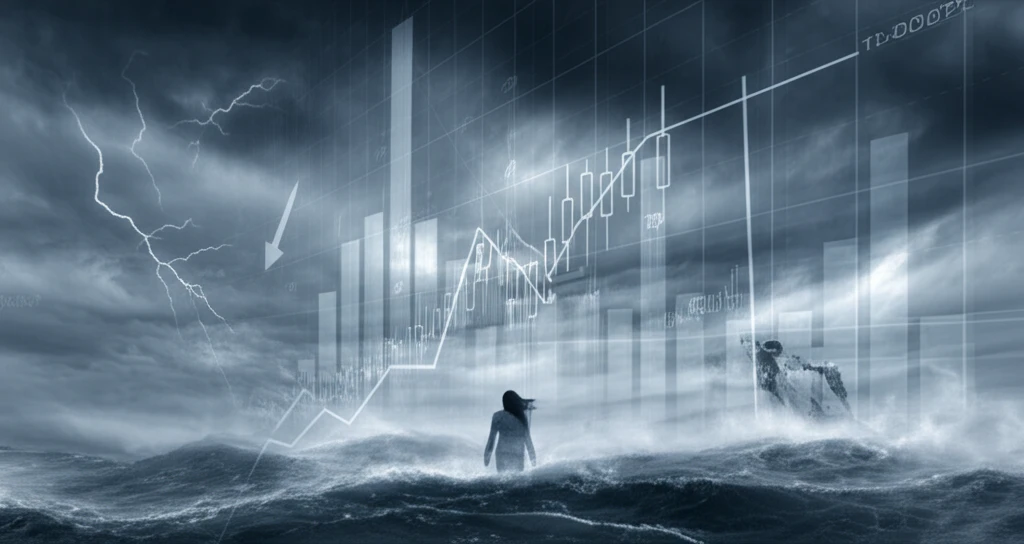
Unpredictable Economy: How to Navigate Expert Forecasts and Make Smarter Decisions
"Decoding the complexities of macroeconomic predictions: Is it possible to outperform the experts?"
In today's rapidly evolving economic landscape, staying informed is crucial. We're constantly bombarded with forecasts from economists and financial institutions, all attempting to predict the future of markets, growth, and stability. But how much can we truly rely on these expert opinions? Recent research delves into the efficiency and accuracy of macroeconomic output growth predictions, challenging some common assumptions about expert forecasts.
A study from Adolfo Ibáñez University examined individual predictions of U.S. output growth rates, focusing on how judgment influences the efficiency and accuracy of these forecasts. The findings reveal a fascinating tension: while most forecasters produce unbiased predictions, their individual judgment often fails to improve accuracy when compared to a baseline median projection. This raises important questions about the value of relying solely on expert judgment.
This article breaks down the key findings of this research, exploring the concept of 'judgment persistence,' the limitations of macroeconomic projections, and offering practical takeaways for individuals and businesses looking to make informed decisions in an unpredictable economy.
The Illusion of Accuracy: Why Expert Judgment Often Fails

The study highlights a surprising phenomenon: most macroeconomic forecasters exhibit no systematic bias in their predictions. This means they're not consistently over- or underestimating economic growth. However, when their individual forecasts are compared against a simple median projection (in this case, the median Bloomberg projection), the impact of their 'judgment' often diminishes or even detracts from accuracy. This suggests that the factors influencing these forecasters, such as their models and data, don’t necessarily improve prediction.
- Overconfidence: Forecasters might overestimate the accuracy of their own models or insights, leading them to deviate from more reliable baseline projections.
- Cognitive Biases: Various psychological biases can influence judgment, such as confirmation bias (seeking information that confirms existing beliefs) or anchoring bias (relying too heavily on initial information).
- Limited Information: Even experts have access to an incomplete picture of the economy. Important data may be unavailable or unreliable, forcing them to rely on assumptions and educated guesses.
- Model Limitations: Macroeconomic models are simplifications of reality. They can't fully capture the complexity of economic interactions, leading to errors in predictions.
Navigating Economic Uncertainty: A Smarter Approach to Forecasts
In conclusion, while economic forecasts offer a valuable glimpse into potential future trends, it's critical to approach them with a nuanced understanding of their limitations. Recognize that expert judgment, while important, isn't a foolproof path to accuracy. Instead, focus on building a well-rounded understanding of economic data, considering various perspectives, and making decisions that align with your individual circumstances and risk tolerance.
